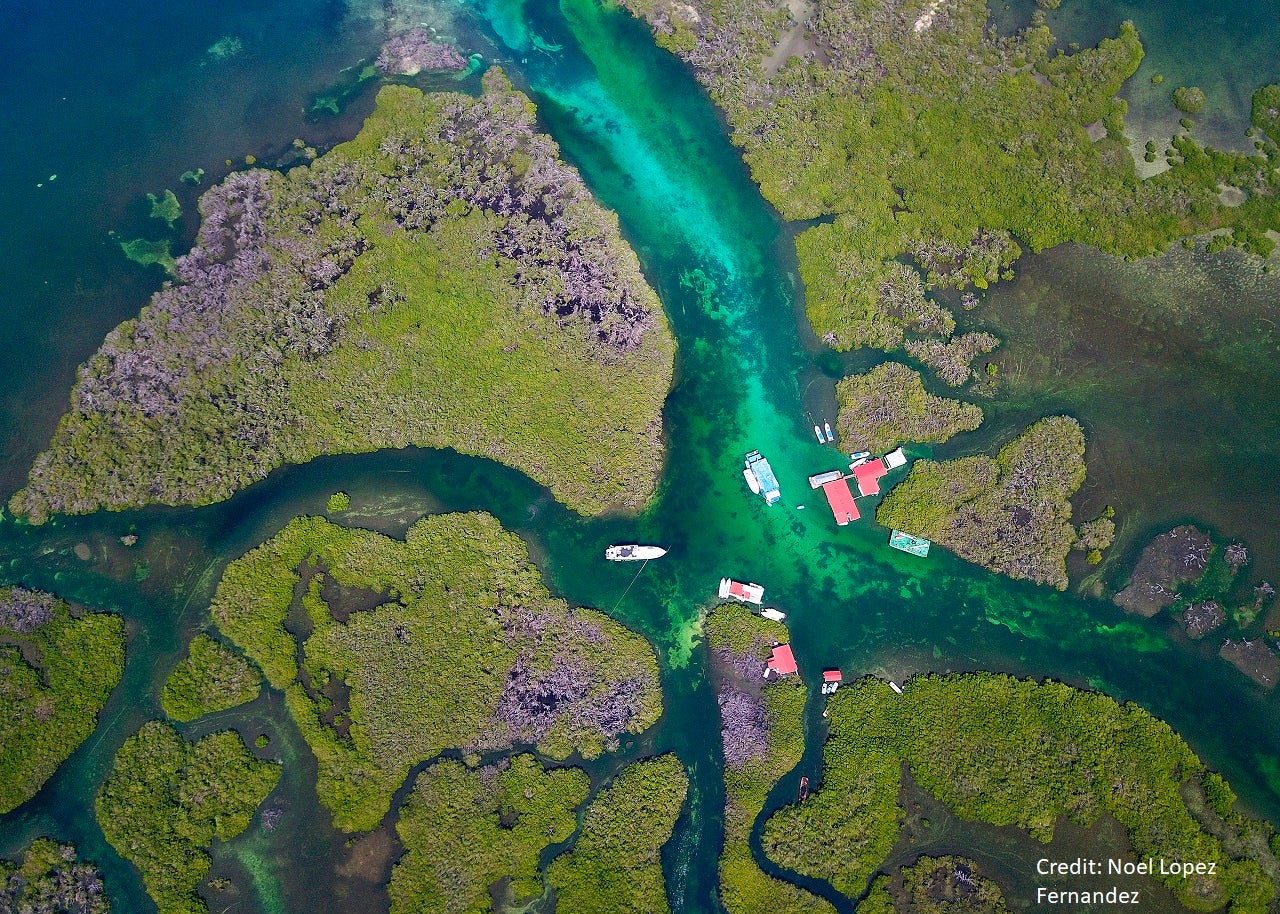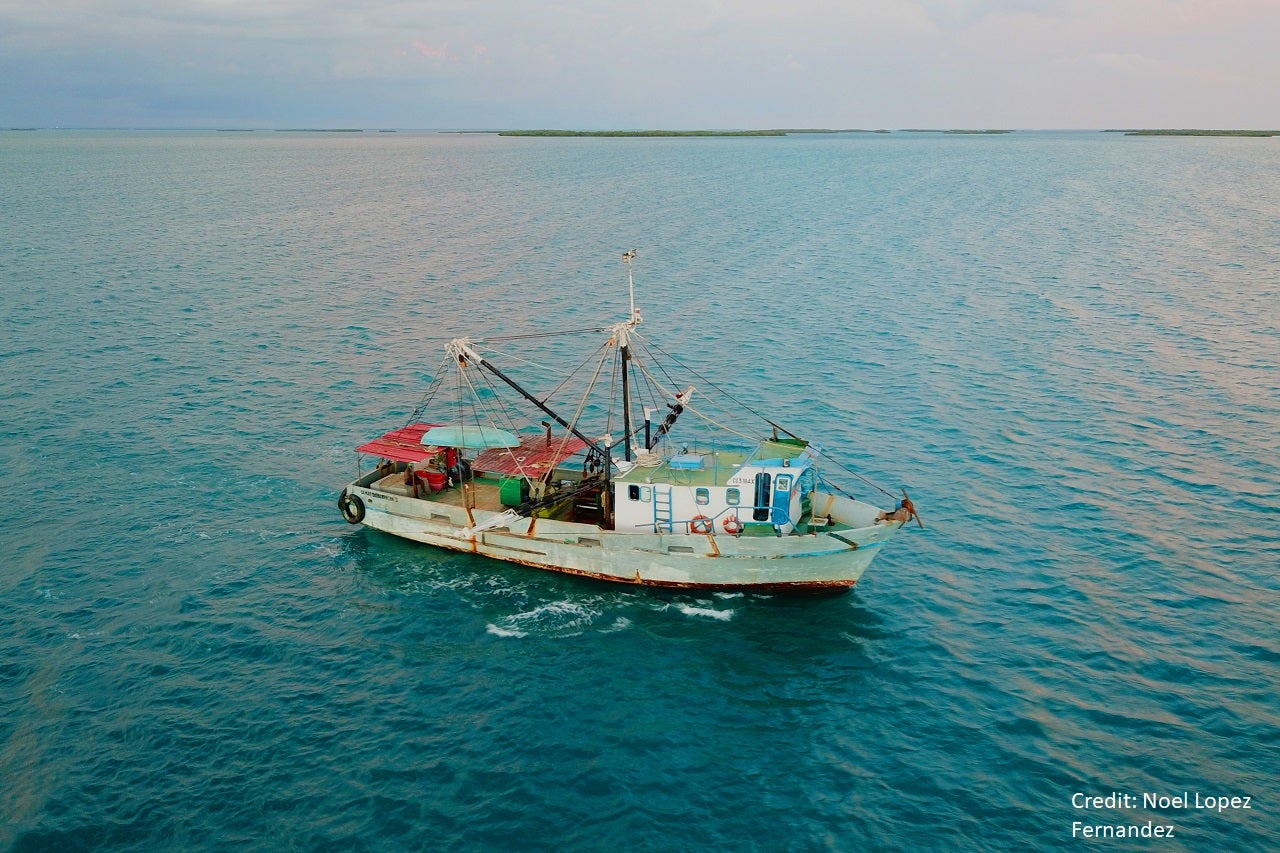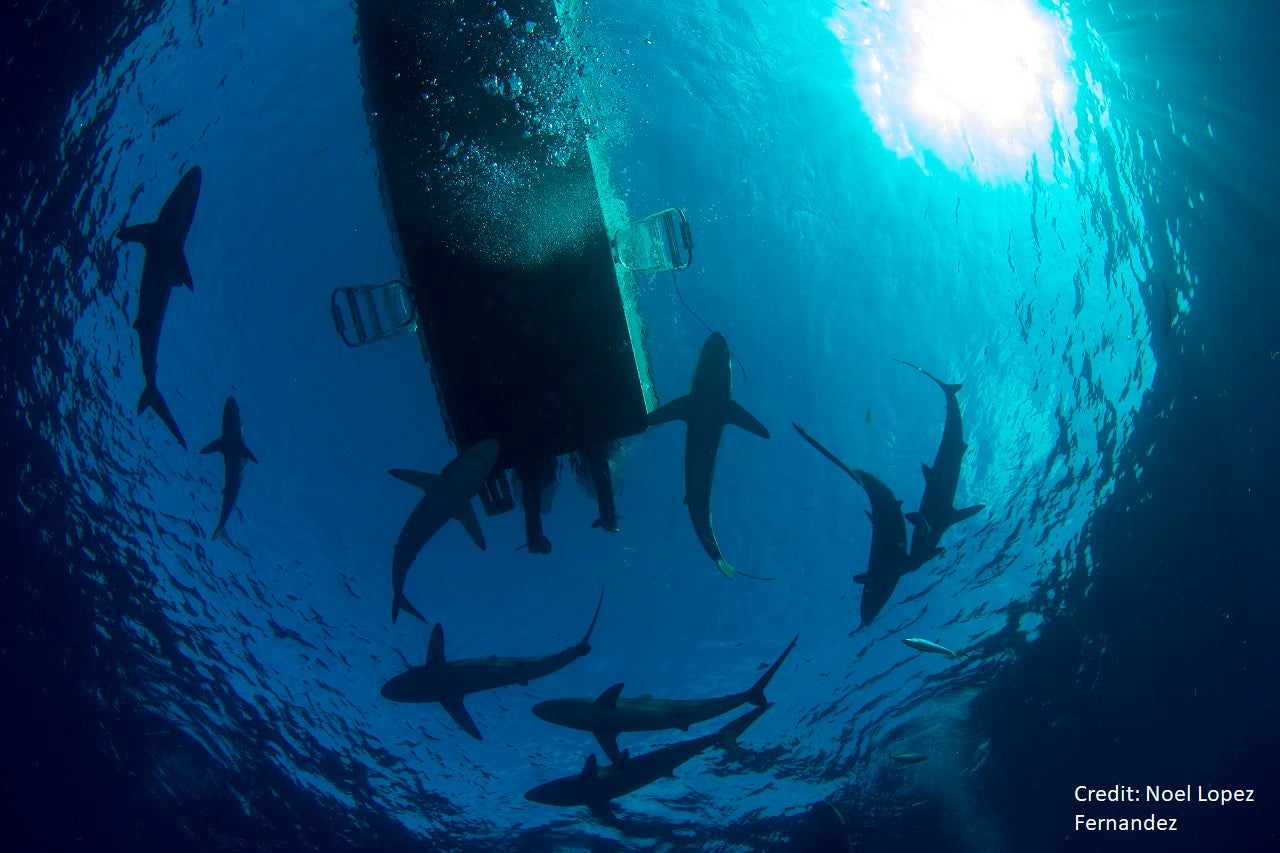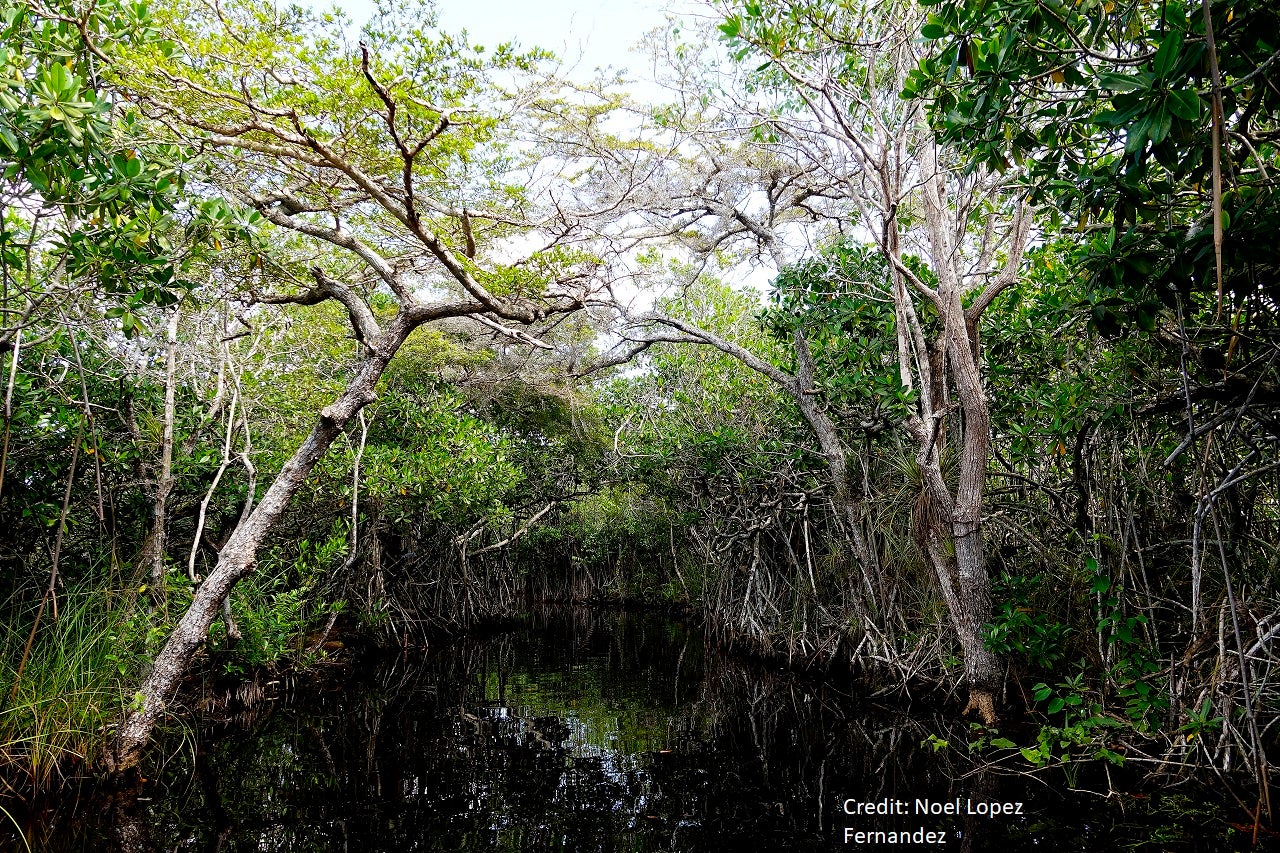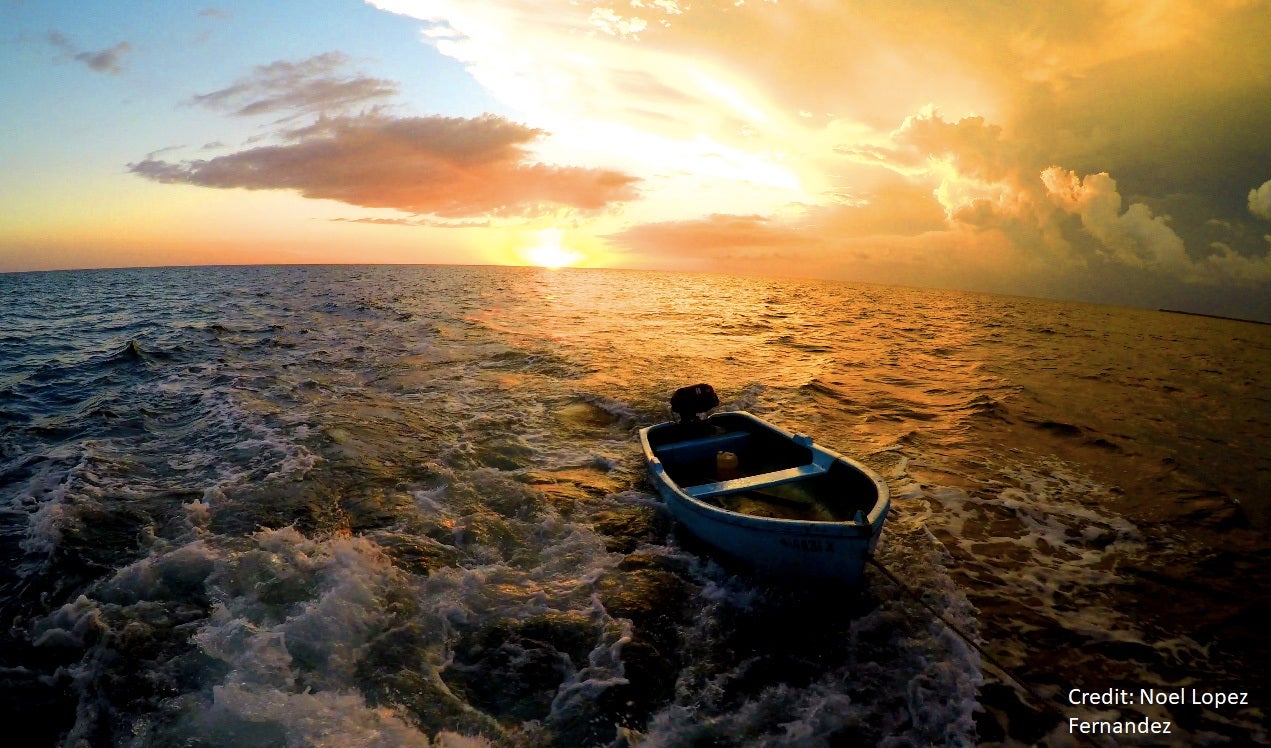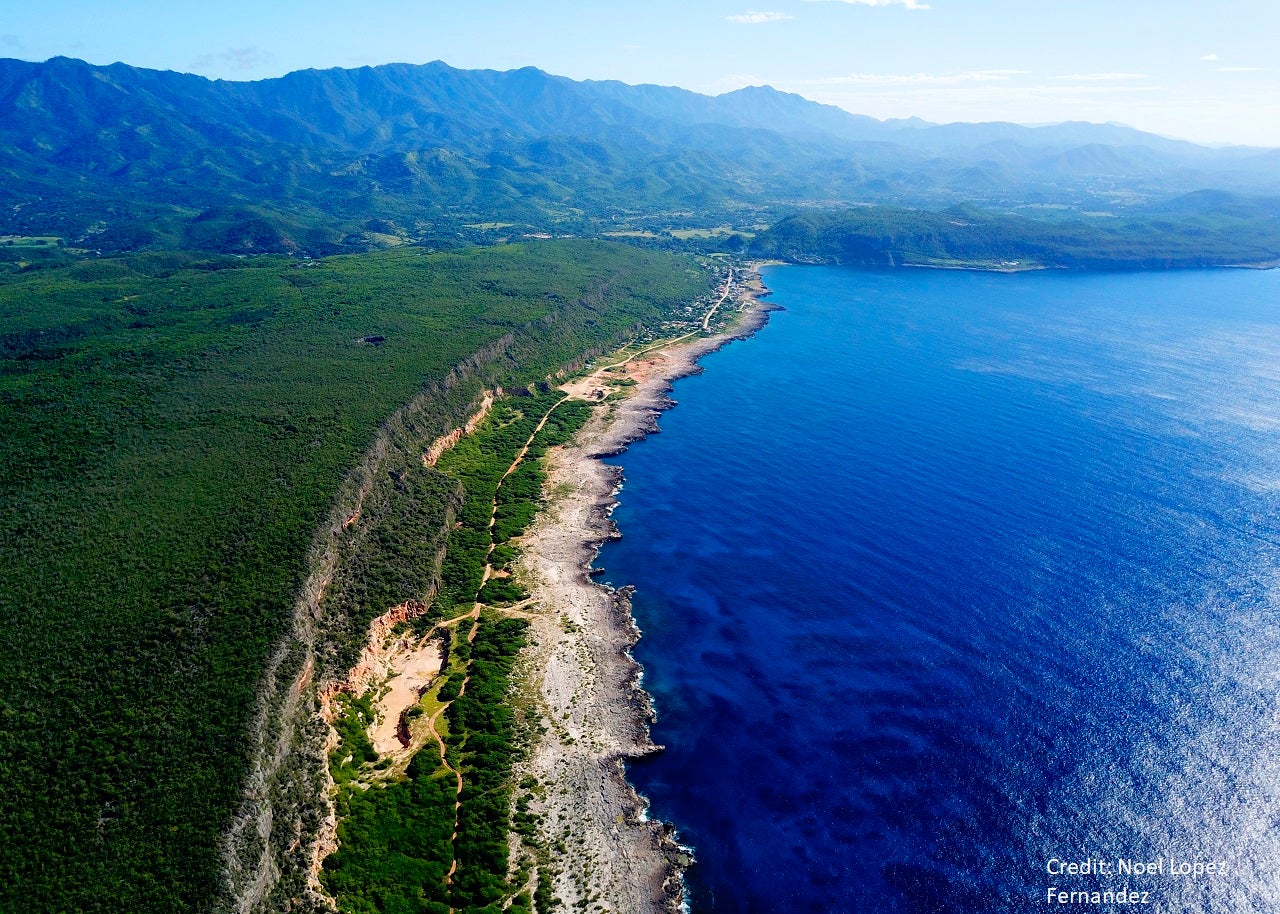By:
- Eduardo “Lalo” Boné Morón, Senior Manager, EDF Cuba Oceans Program
- Juan Carlos Duque, Project Manager of the Biological Corridor in the Caribbean of UNEP
- José “Pepe” Gerhartz, Conservation Specialist of the CBC Secretariat
“Life revolves around the climate,” says José Luis “Pepe” Gerhartz, a senior conservation specialist from the Caribbean Biological Corridor Initiative, or CBC, a joint initiative between Cuba, the Dominican Republic, Haiti and Puerto Rico. The scientific knowledge generated by Pepe, among many other experts dedicated to studying climate, indicates that climate change is causing drastic alterations to our oceans. These alterations are inevitably affecting marine ecosystems and the millions of people who depend on them. Fisheries are already suffering as changes in sea temperature, sea currents and many other processes in the oceans affect the abundance and distribution of marine species. Certain organisms will be able to adapt, moving in search of better conditions. However, many others will not, potentially reducing the oceans’ ability to thrive and nourish the world.
What do resilient fisheries mean for tropical areas?
Changes in the oceans will affect the entire world, but tropical regions are particularly vulnerable to decreases in fishery production as species move toward the poles in search of cooler waters. This includes the 40 million people living in the Caribbean, whose economies rely heavily on marine activities including fishing and marine tourism.
More than 7,000 Caribbean islands make up an incomparable mosaic where diverse cultures, languages and intricate landscapes merge. Thanks to this diversity and the resilience it provides, island inhabitants have been able to face the adversities of weather and other stresses through the centuries. However, modern climate change has brought effects unprecedented in human history. The future of our connections with the sea, including fisheries, depends on our resilience—a concept defined by the Food and Agriculture Organization of the United Nations, or FAO, as the capacity of communities to anticipate crises and recover in a timely, efficient and sustainable manner.
EDF, together with regional partners including the Caribbean Biological Corridor Initiative and the Latin America and Caribbean Office of the United Nations Environment Programme, works toward healthy ecosystems and oceans that benefit coastal communities. Together, these organizations held the virtual seminar, “Climate change-resilient fisheries in the Caribbean,” with a focus on Cuba, the Dominican Republic and Puerto Rico. The seminar was held on September 28, October 5, and October 12, 2021, bringing together 140 people from 16 countries to exchange experiences and boost regional collaborations around fisheries resilience.
In the seminar, Dr. Manuel Barange, the director of the Fisheries and Aquaculture Resources and Policies Division of FAO, shared a keynote lecture on the global perspective proposed by FAO to guide the adaptive management of fisheries to climate change. Given that close to 12% of the world’s population depends on fisheries and aquaculture, Dr. Barange calls for immediate and urgent action.
“With the impacts of climate change on fisheries, it is not only about minimizing damage nor about maintaining the status quo—it is also about maximizing opportunities,” said Dr. Barange. He explained that, given the close relationship between fishing communities and our oceans, it is not feasible to simply protect the sea. Dynamic and ambitious management actions are necessary to achieve healthy fisheries and ecosystems. There is no greater motivation than climate change to heed this call.
In the tropics, a common challenge is that many of the fisheries are multi-species and small-scale. These are complex fisheries that often involve many landing sites and several types of fishing gear that catch different species at once. This complexity—exacerbated by climate change—makes it difficult to monitor and evaluate fish stocks and to establish adequate fisheries management. Fortunately, we learned that communities and governments in the Caribbean have an extensive portfolio of tools to continue increasing their resilience in fisheries and other sectors.
How are countries progressing toward resilient fisheries?
Dr. Barange’s proposal is feasible. Achieving resilient fisheries requires effective fisheries management that promotes the sustainable use of fishery resources based on various socio-economic objectives. In Cuba, the new fisheries law requires science and an advisory council to guide fisheries management. In the Dominican Republic, priority areas for fisheries governance are identified, including the diversification of products and markets as well as the promotion of community leadership. In Puerto Rico, shark finning is effectively prohibited based on local agreements, and there are many other examples in the Caribbean.
The use of science and data is of the essence. The seminar highlighted some of the many scientific advances being made in the Caribbean region to understand trends in biodiversity, fisheries production and the effects of climate change on coastal communities. Ongoing research to understand climate impacts at local scales and inform community decision-making in the Caribbean will continue to be an important tool to prepare for climate change. In addition, research that focuses on broader trends such as regional climate vulnerability assessments and predictions of shifts in species distributions within and beyond the Caribbean region can help us to understand how climate impacts extend beyond local and national jurisdictions. These scientific efforts will help us to understand the challenges that communities will face so that they can better prepare for the challenges and opportunities that climate change will pose.
Given the changing nature of fisheries, which is increased by the impacts of climate change, fisheries managers must be prepared to continuously review and modify their targets based on monitoring results. This inherent flexibility must be collaborative and involve as many actors as possible to ensure its success; therefore, management must be participatory. In Puerto Rico, fishing cooperatives promote communication and social cohesion, facilitating connections between science, management and fisheries policies with work on the water. In Belize, fisheries co-management is a pillar of its national managed access system, promoting shared responsibility among the various actors and boosting decision-making in response to rapid changes in ecological and socio-economic variables. By incorporating multiple voices and perspectives into all phases of fisheries management, the effectiveness and the distribution of costs and benefits are maximized.
When change is the only constant, effective and participatory management must also be precautionary and establish systems to deal with uncertainty and risk. Even when we don’t have access to all the information on the potential impacts of climate change, fisheries management can and should operate despite this uncertainty using flexible systems. In the Dominican Republic, Cuba and other Caribbean countries, a precautionary approach is applied to ensure fisheries act cautiously and effectively. There are several tools for assessing risks related to climate change. These tools help fisheries to define objectives, consider changes in future distribution and productivity, protect the most vulnerable species and focus sustainability efforts on more resilient species.
Finally, this effective, participatory and precautionary system must also be adaptive. Management strategies are experiments that must be constantly analyzed and reevaluated. In Cuba, lobster management considers various climatic variables to decide how to modify catch parameters adaptively, therefore ensuring that populations are stable and productive. Aquaculture is also an important adaptation strategy prioritized by nations around the world as an alternative to continue feeding millions of people and to lessen the pressure on wild-caught fisheries.
A new opportunity to move forward together
The three-year project, “Application of nature-based solutions to increase coastal resilience and adaptive capacity to climate change in protected areas of Cuba,” which is supported by the Caribbean Biodiversity Fund and coordinated by the National Center for Protected Areas of Cuba and the Wildlife Conservation Society, together with EDF and several Cuban institutions, is an example of collaboration in the region. This project will design and implement nature-based solutions to achieve greater socio-ecological resilience in Cuba’s marine protected areas and associated coastal communities. It will also help to reduce climate risks for people in the face of extreme weather events, sea level rise and less-productive fisheries. Working together in strong partnerships to find creative solutions to climate change challenges is key for the protection of marine resources and for improvements to community livelihoods in the Caribbean.
This seminar showed that there is significant progress regarding sustainable fisheries in the Caribbean and the rest of the world. However, isolated efforts are not enough. The ecological and socio-economic interconnectivity that governs fisheries systems in the Caribbean requires greater integration and cooperation among the countries in the region. Platforms are needed to facilitate coordination between communities fishing in the same waters and to create new opportunities to unite coastal communities, scientists and marine protected areas. The existing Caribbean Biological Corridor Initiative is working through its governance mechanism to position itself as one of these platforms, and EDF and several regional partners stand ready to continue to support this work.
2022 is the International Year of Artisanal Fisheries and Aquaculture, or AIPAA 2022. Join EDF and many other organizations around the world as we seize this opportunity to heed Dr. Barange’s call and ensure climate-resilient fisheries for generations to come.










